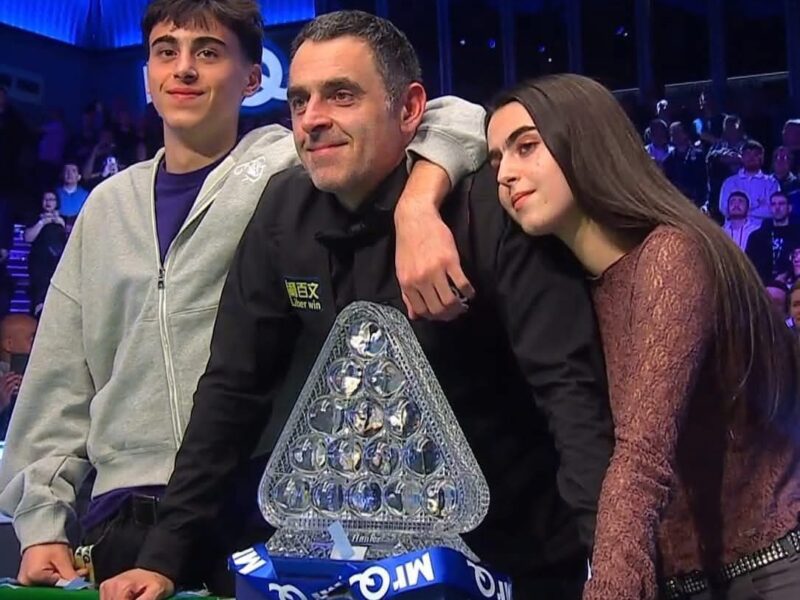Ronnie O’Sullivan Reveals What Gets Clearer with Age: “I Don’t Care for the Crowds…”
In a candid and reflective moment, snooker legend Ronnie O’Sullivan recently opened up about the shifting priorities in his life and career — and the quiet revelations that only time can bring. Known for his blistering talent, six world titles, and often volatile relationship with the sport, O’Sullivan’s latest admission sheds light on the man behind the cue: thoughtful, raw, and remarkably honest.
Speaking during a recent interview, O’Sullivan offered a striking statement that’s resonating far beyond the snooker community. “I don’t care for the crowds. I don’t need the applause,” he said. “What matters is truth — and the people who stay when no one’s watching.” It’s a simple line, but one loaded with depth, maturity, and the hard-earned wisdom of someone who has lived under the spotlight — and sometimes tried to run from it.
The Burden of the Spotlight
From a young age, Ronnie was hailed as a prodigy. At just 17, he claimed his first professional title and earned the nickname “The Rocket” for his astonishing speed and flair. But with fame came pressure, expectation, and scrutiny. His career has been marked not just by brilliance, but by battles with depression, addiction, and a love-hate relationship with the game that made him famous.
Now at 49, O’Sullivan has found a new kind of clarity. “You chase the spotlight when you’re young,” he reflected. “You think success is the applause, the cheers, the trophies. But the older you get, the more you realise that’s just noise. What counts is the quiet. The people who still show up for you when the lights are off.”
Truth Beyond the Table
O’Sullivan’s words suggest a deeper transformation — one that goes beyond snooker. He speaks now more about peace than victory, about truth instead of titles. And for a man who’s often wrestled with the demands of fame, it seems that he’s finally found the freedom to be himself — on his own terms.
“I used to think I needed to prove something,” he said. “To the critics, to the fans, to the doubters. Now? I only need to be honest. With myself, and with the few people who really know me.” That honesty has become a hallmark of his later career. Whether it’s walking out of matches when he feels disconnected or publicly challenging the snooker establishment, Ronnie’s no longer playing a role. He’s simply living his truth.
Loyalty in the Shadows
When Ronnie talks about “the people who stay when no one’s watching,” he’s talking about loyalty — the rare kind that isn’t tied to success or spotlight. “It’s easy to be loved when you’re winning,” he noted. “But the ones who call when you’re losing, or when you’re quiet — those are the ones that matter.”
For O’Sullivan, that includes a small circle: his partner, close friends, and a few mentors who have stuck by him through his darkest days. He credits them with helping him navigate the emotional highs and lows of a life in the public eye. “They’ve seen the worst of me, and they stayed,” he said. “You don’t forget that. You don’t take that for granted.”
A Legacy of More Than Trophies
As he enters what many believe to be the final chapters of his competitive career, Ronnie seems more interested in legacy than in rankings. But it’s not a legacy of statistics or titles he’s after — it’s something deeper. “If they remember me just for how I played, that’s fine,” he said. “But if they remember me for being real — for being human — that’s better.”
In an era obsessed with fame, filters, and constant validation, O’Sullivan’s words are a sobering reminder that authenticity still matters. That in the end, it’s not about the size of the crowd or the volume of the applause. It’s about staying grounded in what’s real — and who’s real.
Ronnie O’Sullivan may be The Rocket on the table, but off it, he’s more philosopher than showman these days. And as his insight deepens with age, one thing becomes clear: he’s no longer chasing greatness — he’s quietly becoming it.


